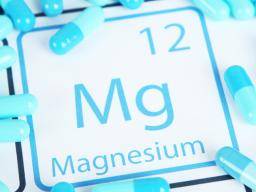
What Does High Magnesium Level Mean. Magnesium is a mineral that helps your heart muscles and nerves work normally. Ferritin is a protein that stores and transports iron in the blood. Some symptoms and signs of high magnesium levels include. Irregular heart-beat arrhythmia Low blood pressure hypotension Low heart rate bradycardia Skin flushing Difficult or slow breathing Muscle weakness Nausea Vomiting Facial paresthesia Decreased tendon reflexes Headache Constipation Blood.

High levels of magnesium also make it difficult for plants to successfully utilise the bit of potassium that exists in the soil. Altogether magnesium is necessary to facilitate over 300. It is rare and is usually caused by renal failure or poor kidney function. Serum magnesium lower than 18 mgdL is considered low. For example increased levels of magnesium may be seen with kidney disease because magnesium is excreted by the kidneys. Some specific causes of high magnesium might include.
Magnesium is a mineral that helps your heart muscles and nerves work normally.
Altogether magnesium is necessary to facilitate over 300. It also helps strengthen your bones. Serum magnesium lower than 18 mgdL is considered low. Doctors in 147 specialties are here to answer your questions or. Magnesium is one of many electrolytes in your body. You can run a blood test to.